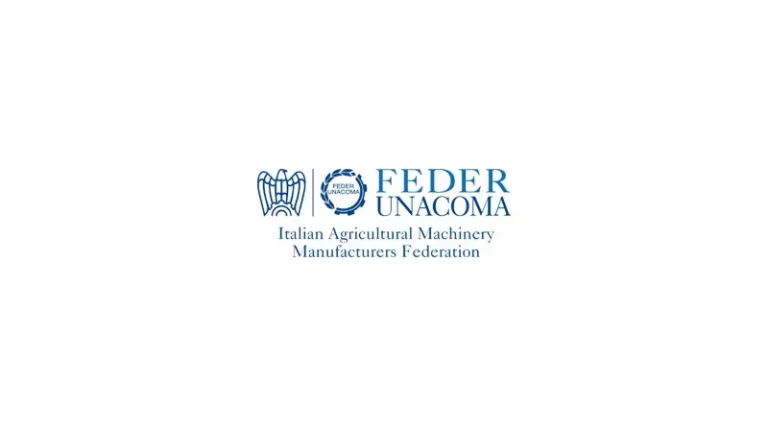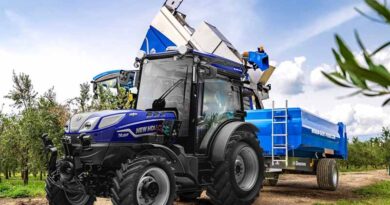
Agricultural Mechanization: Reestablishing Euro-American Cooperation
06 October 2025, Italy: FederUnacoma takes part in the Como conference on economic relations between the European Union, Canada, Mexico, and the United States. Technical cooperation is possible through greater market openness. Digital technologies are crucial for addressing the challenges of agriculture and the environment.
“Technical and scientific collaboration between Europe and North America cannot develop unless we start by acknowledging that there is a demographic and environmental emergency, which must be addressed immediately, in accordance with the recommendations of the scientific community and international institutions”. These were the words with which FederUnacoma President Mariateresa Maschio greeted the North American – EU Agriculture Conference, the 41st edition of which opened this morning in Como. “Technical and scientific collaboration between Europe and North America,” added the president of FederUnacoma, “cannot exist unless markets are also fully opened. The development of a high-quality agricultural model, as a response to competition in agricultural and agro-mechanical markets from emerging economies, requires that trade be encouraged, not hindered by protectionism and customs policies that, instead of integrating our systems, distance them”.
The Como meeting, attended by over 250 figures from the agricultural and agro-industrial world representing the European Union, Canada, Mexico, and the United States, is taking place at a difficult time for trade relations between the two sides of the Atlantic—as underlined in their speeches by Copa President Massimiliano Giansanti and the presidents of the Italian professional agricultural organizations—and therefore represents an opportunity to re-establish political dialogue and affirm the desire for cooperation between economic systems that must be complementary. Agriculture’s task is to produce vital goods, argued Minister of Agriculture, Food Sovereignty and Forestry, Francesco Lollobrigida, but at the same time to protect the land, defend the environment, and support rural communities. Despite their differences, it was said, the agriculture of the countries represented at the Conference shares a production model that focuses on quality and fair returns for farmers and which, especially in the face of fierce competition from emerging countries, must be allowed to develop within a free trade system.
The topic of tariffs was addressed in the session “North America-EU Trade Trends and the USMCA Review,” in which Deputy Director General Fabio Ricci took part for FederUnacoma. The tariffs significantly risk reducing trade in agricultural machinery to the United States, Ricci noted, and with it damaging European industry in terms of turnover, and therefore its ability to invest in research and development of increasingly advanced technologies that are essential for modern agriculture. Restricting trade, Ricci added, could also prove detrimental to the American agricultural system, which relies on many technologies produced in Europe. Consider, for example, the ranges for specialized crops traditionally produced in Italy, which in recent years have contributed significantly to the development of viticulture and fruit growing in the United States.
Cooperation, however, is not only taking place in the commercial field, but also in the scientific field, especially through the development of increasingly advanced digital technologies and mechanical vehicles. These were discussed, again within the context of the conference, during a meeting entitled “Data and Agriculture” attended by Alessio Bolognesi, head of digital technologies for the FederUnacoma technical service.
Focusing on the importance of data in agriculture, both for farms and for machinery manufacturers, Bolognesi’s speech highlighted how the EU Data Act redefines access to data, ensuring fairness and benefits for farmers. However, it is important to focus on the challenges that data management poses for the agricultural machinery industry. Bolognesi pointed out how data interoperability is a key factor for innovation in agriculture. In this regard, key initiatives such as ISOBUS, AgIN and ADAPT were presented, which promote standardization and connectivity. Interoperability – concluded Bolognesi – promotes efficiency and innovation.
Also Read: Maize Prices in India Fall Nearly 10% in September 2025 Amid Surplus Supplies
📢 If You’re in Agriculture, Make Sure the Right People Hear Your Story.
From product launches to strategic announcements, Global Agriculture offers unmatched visibility across international agri-business markets. Connect with us at pr@global-agriculture.com to explore editorial and advertising opportunities that reach the right audience, worldwide.






